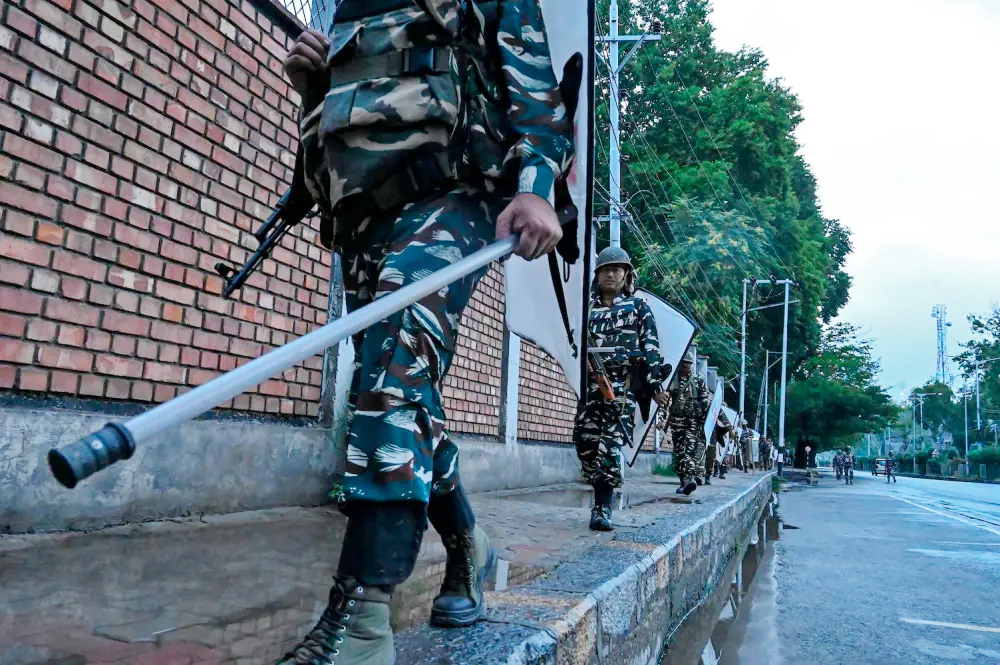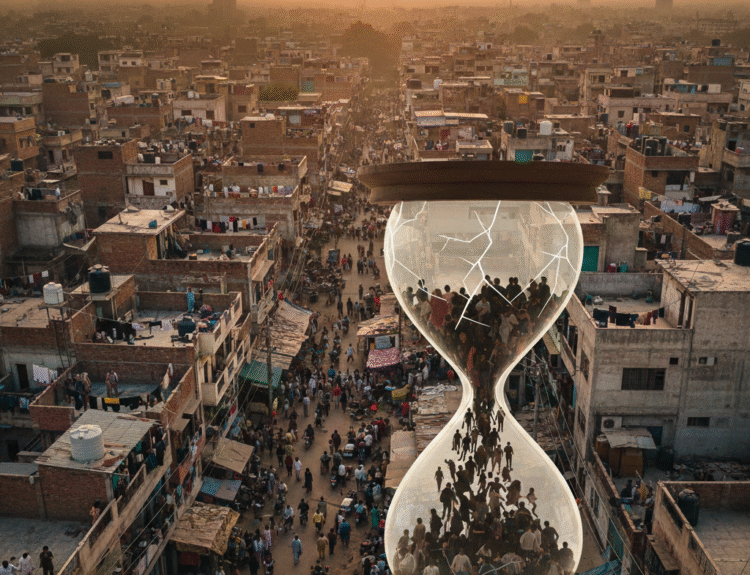No amount of agony and suffering can compare to the misery of living under foreign occupation. It is inhumane, brutal, unjustifiable, and illegal under all international law and moral standards. A large number of laws ban the illegal occupation of a region. However, “Jammu and Kashmir,” an area with a population of more than 10 million, has been brutally occupied by India for the past 75 years.
It is the region where generations have witnessed darkness, tyranny, persecution, and state terrorism. During this inhumane occupation, Indian forces have killed over 100,000 Kashmiris, kidnapped and wounded thousands of young people, and raped women. Arbitrary detentions, bogus cordon and search operations, congregational bans, social media restrictions, and brutal physical torture, including the indiscriminate use of pellet guns, have become the standard in Kashmir.
“Living under foreign rule is living in constant fear, which is the antithesis to human advancement. India, the region, and the world at large would all benefit from India realizing this sooner rather than later”
In today’s modern world of liberty and freedom, “Occupied Jammu and Kashmir” is a “human rights black hole” in which Kashmiris live a life of anguish and sorrow. And all of this is being done by India for one diabolical goal: to perpetuate its unlawful occupation of the territory by depriving Kashmiris of their fundamental right to self-determination, which was granted to them by the United Nations Security Council in many resolutions.
This epic tragedy in picturesque Jammu and Kashmir began in 1947. According to the partition formula, the Muslim-majority, geographically contiguous areas had to create an independent entity called Pakistan. However, the Hindu ruler of Jammu and Kashmir colluded with India against the wishes of the region’s Muslim majority. In October 1947, India deployed its occupation forces, ushering in a long and terrible chapter of illegal occupation.
While taking the topic to the United Nations, India’s First Prime Minister Jawaharlal Nehru stated, “We have declared that the fate of Kashmir is ultimately to be decided by the people.” We made this vow not only to the people of Kashmir, but to the entire world. We will not and cannot back out of this.” Following protracted talks on the subject, the United Nations Security Council issued multiple resolutions calling for a UN-supervised plebiscite in the disputed region to resolve the conflict in accordance with the wishes of the Kashmiri people. However, knowing that the people’s will was against it, India violated its pledges to the Kashmiris and the world community. Since then, India has used every possible method to prolong its illegal control of the territory.
The most outrageous step in the systematic oppression of Kashmiris occurred four years ago, on 5 August 2019, when India sent additional hundreds of thousands of troops to Jammu and Kashmir following its unilateral and illegal attempt to change the disputed status of the occupied territory. The illegal activities of New Delhi were followed by an unprecedented military siege and increased harsh restrictions on Kashmiri people’s fundamental rights and freedoms, such as the closure of communication routes, extrajudicial killings of Kashmiris, and the imprisonment of their leaders. The Indian apparatus attempted to change the demographic character of the territory by putting non-Muslim outsiders in the occupied zone, converting the existing Muslim majority into a minority in their own country. India has now implemented a number of policies aimed at depriving Kashmiris of their culture, language, religion, and values.
These horrible acts by India are blatantly against the United Nations Charter, many resolutions of the Security Council including UNSC 38, 47, 51, 91 and 122. More, these actions violated international law —especially the Fourth Geneva Convention, humanitarian standards, and morality. Most importantly, Indian actions were in violation of the 1972 Simla Agreement between Pakistan and India. Kashmiris across the world have categorically rejected all of India’s actions undertaken in the guise of normalcy.
The predicament of the Kashmiris under Indian unlawful occupation has been extensively documented by international organizations, the media, parliaments, civil societies, and world leaders in their in-depth reports, essays, and speeches. Humanitarian groups have warned of genocide against Kashmiris, but Occupied Kashmir remains a site of ongoing Indian atrocities.
Conversely, animosity against minorities and their human rights violations, especially those of Muslims, are intensifying under the Hindutva-inspired RSS-BJP government in India. The xenophobic and extreme policies of New Delhi are not only hurting the Muslims of Occupied Jammu and Kashmir, but they are also making life miserable for other minorities across India. The guardians of international law should take quick action in response to the worsening human rights and humanitarian conditions in India’s Jammu and Kashmir.
Understanding the journey India, a nation of more than 1.4 billion people, has embarked on, one can conclude that challenging times awaits for the region and the world ahead. One strange thing is certain about extremism and hatred that one can turn the tap on but it is not in one’s control to turn it off, while generations to come pay the price through their blood.
Policies of hatred, racial superiority and violence through non state actors, like the proverbial Frankenstein monster, invariably outgrow their creators, often turning on them: it happened in turkey with President Erdogan and the Gulenists, it happened with US and Afghan Mujahideen who later morphed into Taliban, and it happened with the Wagner group in Russia.
In the current times of political and economic turmoil in the world today. As a step toward an international order founded on norms and fairness, it is crucial that the long-standing issues be settled in this period of unprecedented volatility by fair and peaceful means. According to Rousseau, “Man is born free but everywhere he is in chains,” meaning that a free person must continue to be free throughout their life. Living under foreign rule is living in constant fear, which is the antithesis to human advancement. India, the region, and the world at large would all benefit from India realizing this sooner rather than later.




